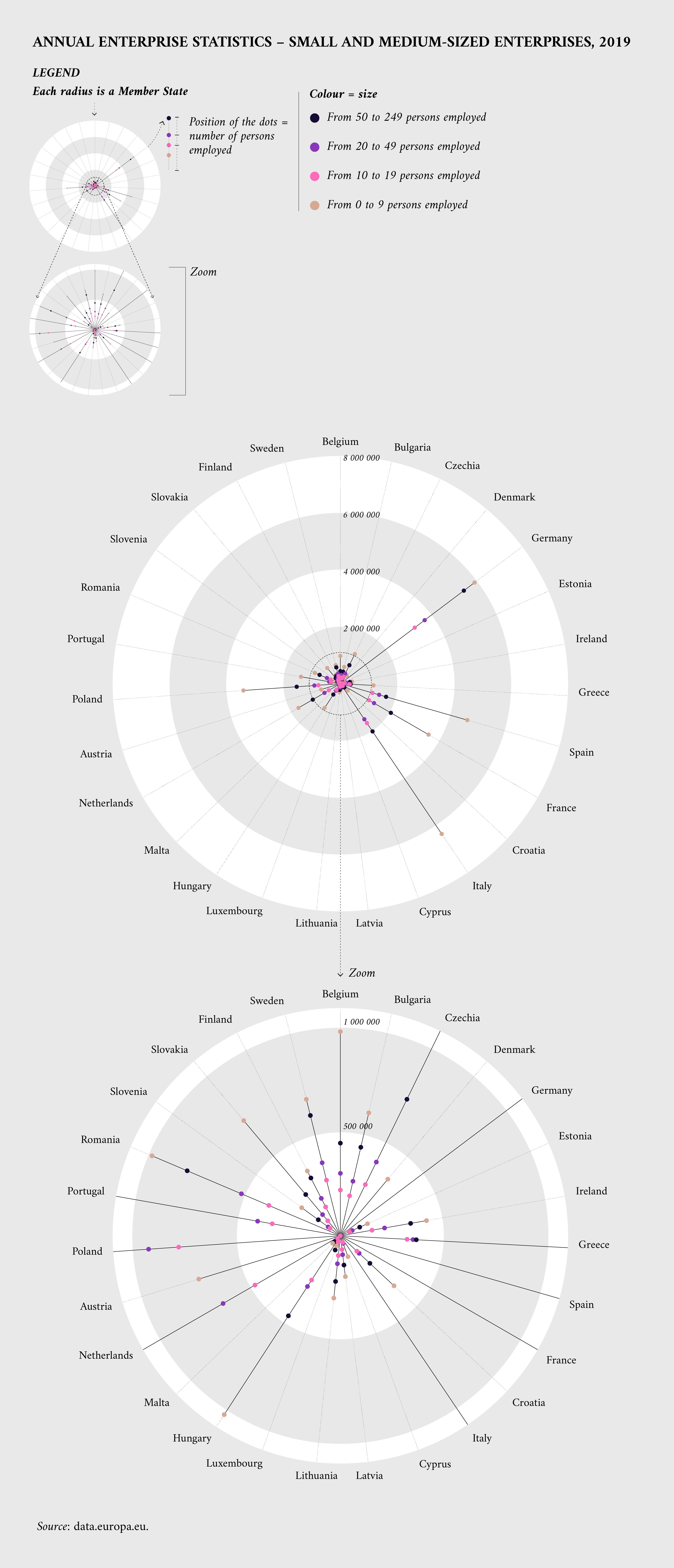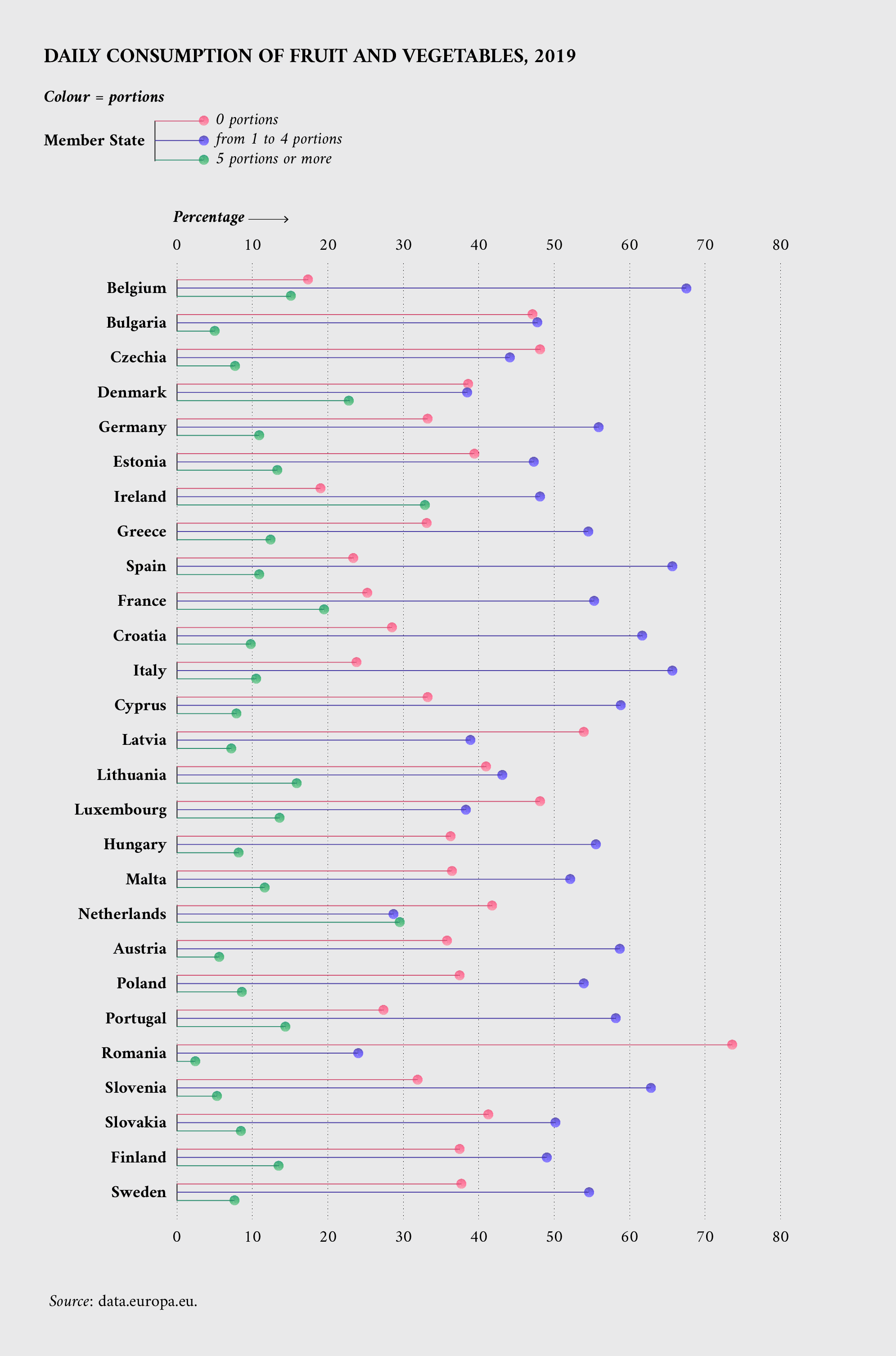Data sharing and competition law
The state of play and the way forward
Benefits of (open) data sharing
Open data is the most far-reaching approach of data sharing for at least three reasons. Firstly, while data sharing can also happen against remuneration, the concept of open data allows to make data freely available without restrictions. Secondly, access to and reuse of open data is granted to all: from public sector bodies to private companies, and individuals. Thirdly and most importantly, disseminating data as open data and enabling its reuse has the potential to generate benefits not only at societal level, but also for our economy.
Open data is often first associated with public bodies publishing data to enable more government transparency or facilitating citizens’ access to public services. Yet, sharing open data can also benefit companies and Small- and Medium-sized Enterprises (SMEs) (Figure 1). The latter constitute the backbone of European economies, representing 99% of all businesses in the EU.

Figure 1 - Visualisation of SMEs in the European Union
A practical example of how (open) data sharing can benefit SMEs comes from C4P, one of the 30 reuse cases interviewed for the Use Case Observatory. C4P is itself an SME using open data from Tenders Electronic Daily (TED) to develop a machine-learning algorithm that provides insights into EU public procurement. By doing so, C4P has already helped several companies in Europe to find opportunities that best suit their competencies, to understand competition, and find relevant collaborators.
Another example of (open) data sharing in support of businesses in Europe is Open Food Facts, winner of the EU Datathon 2018 challenge ‘European Food Safety Authority – Fostering data reuse and innovation’. Open Food Facts offers a multilingual database of food products and their characteristics. This database is based on open data - among others from the European Food Safety Agency (Figure 2) and the French open data portal (data.gouv.fr) -, and can be accessed, nurtured, and reused by anyone for any purpose. So far, the data shared by Open Food Facts has been reused for more than 200 apps and services.

Figure 2 – Example of dataset reused by Open Food Facts and provided by the European Food Safety Agency
Market competition and data
The use cases above show the importance and potential of open data and data sharing. Yet, the ability to collect and retain exclusive control over data comes with multiple challenges and the risk of anti-competitive practices. If no alternative data source exists, a large and powerful data holder could impose limitations to access this data, preventing other companies from competing in the market.
To ensure consistency between data access rights and further stimulate business-to-business and business-to-government data sharing, the European Commission proposed the Data Act in February 2022. Thanks to a reinforced portability right (which allows individuals to obtain and reuse the personal data they provided to a company or organisation acting as data controller), the act will give individuals and companies more control over copying or transferring their data from across different services and devices, thereby complementing existing legislative provisions.
On 24 March 2023, a common position on the proposed Data Act was agreed by the Member States’ representatives (Coreper). This will allow the Swedish presidency of the Council of the EU to enter negotiations with the European Parliament on the legislation.
What exactly does the Data Act mean in the context of competition law? What changes will it bring for the data holders, including public sector data and data.europa.eu?
Competition law: what has been done until now
Throughout the past years, EU competition law has been used to repeatedly tackle a range of anti-competitive data management practices. The EU can not only establish rules for the correct functioning of the internal market, but also fine entities not respecting such rules.
As of today, two provisions have been particularly important for tackling anti-competitive practices in the data market. A first provision entails the ban on anti-competitive agreements, i.e., any agreements or practices that may affect trade between Member States and ‘which have as their object or effect the prevention, restriction or distortion of competition within the internal market’ (article 101 of the Treaty on the Functioning of the European Union (TFEU)). The second provision refers to the prohibition of any abuse of dominant position within the internal market (article 102 of the TFEU).
However, in this context, the specificity of the data realm presents new challenges. Following prior jurisprudence (e.g., Microsoft (T-201/04) and Huawei (C-170/13)), the article 102 TFEU is currently interpreted on a case-by-case basis for questions including, for example, recognition of a dominant position or market distortion in a non-traditional marketplace such as the data economy.
The Data Act as potential game changer
In line with the challenges described above, a set of data-focused legislative initiatives are materialising at the EU level to complement present practices and address the changing needs of our economy. Beside the Digital Services Act, the Digital Markets Act and the Data Governance Act (about which you can read in our August 2022 data story), the proposed Data Act is expected to allow a fairer and innovation-friendly competition in the data sharing economy by introducing measures to:
-
make data generated by using a product (e.g., a digital device) or related service available to the user of this product or service;
-
ensure fair, reasonable, non-discriminatory and transparent terms and conditions of data sharing. This means that when making data available, data holders cannot discriminate against different groups of data recipients, for example by sharing data of different quality with their linked enterprises and with non-partners. Moreover, data holders will have the right to charge data recipients with a reasonable fee as compensation for the data access, but not for data collection or production;
-
make it easier to switch between providers of data processing services;
-
make business-to-government data sharing mandatory, where there is an exceptional need; and
-
protect non-personal data held by certain service providers in the EU (e.g., commercially sensitive data, such as trade secrets and other data subject to confidentiality agreements).
Until the adoption of the Data Act, both (open) data holders and data providers should be aware of the present challenges that can be encountered in data sharing and prepare accordingly for the upcoming changes. This means, for example, that:
-
Data holders should have a clear understanding of the market (global, European, or local) in which they are active, or more precisely, which services they are offering in that market that generate or use data;
-
Data holders should assess their dominance in the market, i.e., if alternatives to their data are available and accessible;
-
Data holders should not apply different conditions to data sharing practices conducted, i.e., avoid discrimination;
-
Data holders should openly consider whether their practices are enabling fair competition and innovation.
Outlook for data holders and data.europa.eu
Overall, existing cases of SMEs working with and being positively impacted by open data are a tangible example of the importance of data sharing. At the same time, as technology evolves and the needs of our economy change, new challenges arise in the data sharing environment. That is why the European Commission proposed the Data Act, which is to introduce measures to clarify who can create value from data and under which conditions.
As described by Thierry Breton, Commissioner for Internal Market, ‘the Data Act will ensure that industrial data is shared, stored and processed in full respect of European rules. It will form the cornerstone of a strong, innovative and sovereign European digital economy.’
On its part, data.europa.eu will monitor changes and evolutions in the present legislative frameworks related to data sharing, and continue highlighting new developments and initiatives, especially those relevant for (open) data holders and data providers. Moreover, it will continue encouraging the development of interoperable infrastructures that facilitate open data flows through accessible interfaces, APIs and open standards.
Do you want to learn more on the topic of data and fair competition? Read the full research report on data sharing and competition law and consult our related learning module on data.europa academy. Also, don’t miss our next data stories by subscribing to our newsletter and following data.europa.eu on social media by clicking on the buttons below.
